Manifesto -Accessible

A Manifesto for the Future of Tourism
Accessible tourism
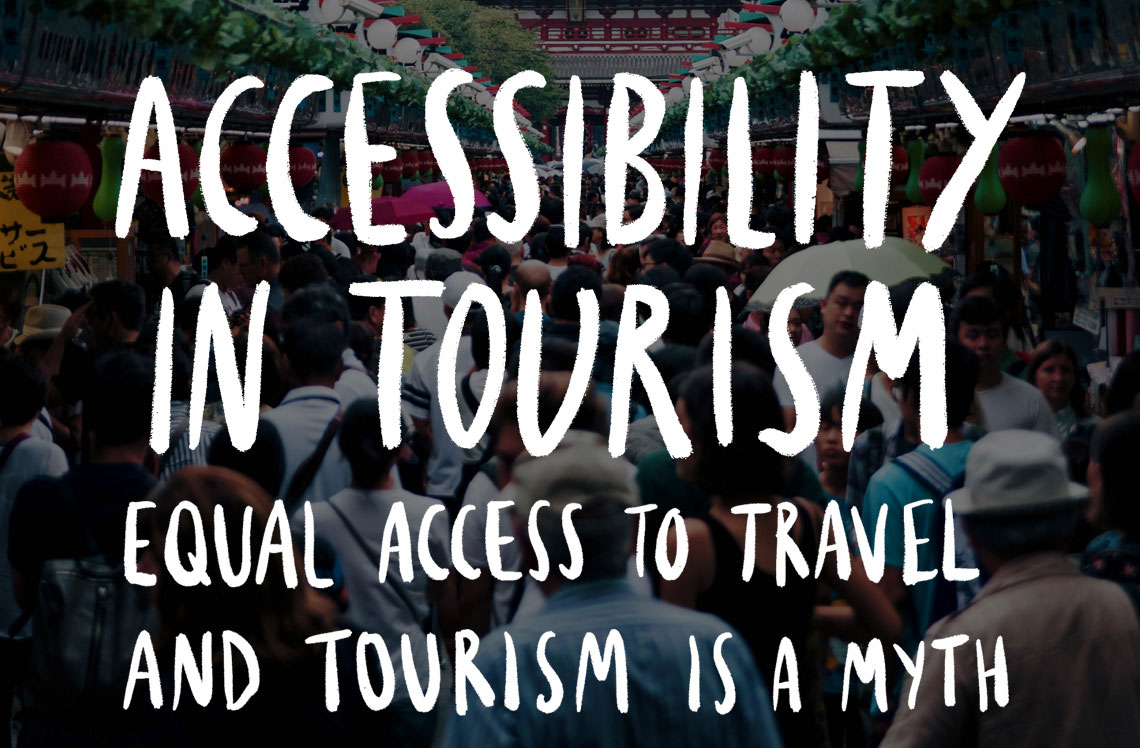
Everybody needs good accessibility
Twenty-two percent of the UK population has some form of disability, long-standing illness or impairment, whether it is physical, mental or cognitive. Furthermore, additional needs are not always visible: in the US, 96 percent of those with chronic medical conditions live with a condition which is invisible.

The world's population is also living longer, leading to a greater likelihood of accessibility requirements as people get older.
With one in four people in the UK experiencing mental health issues each year — from schizophrenia and bipolar disorder, through to phobias or anxiety — and with awareness increasing, the number of people affected may rise further.
Most adults living with specific access requirements have developed their condition through ageing, illness, injury or accidents. In the UK, one in five people will experience life-changing impairments or illnesses affecting their personal mobility.
 Three in five people will be carers at one point or another.
Three in five people will be carers at one point or another.
The road to nowhere
Equal access to global travel and tourism is currently a myth. Yet studies have found that people are at their happiest when they have a vacation planned.
On average, adults with a disability travel just over half the distance per person per year travelled by adults without a disability. Families with children with access requirements feel unable to take a vacation together. Those with a disability are doubly disadvantaged, as they are more likely to be living in poverty or confront a significant disability pay gap.

Facing a brick wall
So why is traveling with a long-standing illness or impairment still so challenging? And how do we make it easier for those affected — and for their family and friends?
Travel websites and product
Travel websites are not offering enough accessible product, nor are they designed in an accessible way. Read more...
Poorly designed travel websites and a limited (or non-existent) choice of trips can make planning a vacation difficult. On top of that, there's an overwhelming lack of information from travel companies about the availability and suitability of accessible vacations.
 Not knowing what to expect was cited as a barrier to travel for 40 percent of respondents in one Australian tourism study.
Not knowing what to expect was cited as a barrier to travel for 40 percent of respondents in one Australian tourism study.
When it comes to choice, accessible options are in short supply, especially when it comes to adventure and wildlife trips. The European Network for Accessible Tourism (ENAT) conducted a study in 2014 of three million travel service providers across Europe. They found that just 9 percent had accessible products on offer. This is a huge failing of the travel industry. Travel — including adventure travel — can and should be for everyone.
In 2012, ENAT conducted a study which reviewed 41 European National Tourism Organisations (NTOs) websites. Only 19 included information specific to travelers with disabilities.
And what about browsing vacation company websites? Under the EU Web Accessibility Directive, public sector websites and apps must be accessible by September 2020. (Private companies, however, aren't covered.) Then there's the 2019 European Accessibility Act which requires businesses with an annual turnover of more than €2 million to have accessible websites for online sales by 2025. It's an important step forward.
Airports
Special assistance is not available across the globe. Read more...
The EU passed legislation in 2006 so that passengers with disabilities are legally entitled to free special assistance when traveling by plane or ferry. Similar rights apply in the US. However this is not the case across the globe. In Brazilian airports, for example, there are no dedicated assistance services for passengers with additional needs.
Even in Europe, passengers often aren't getting the assistance they need — or in good time. In 2018, four UK airports were still found to be failing passengers.
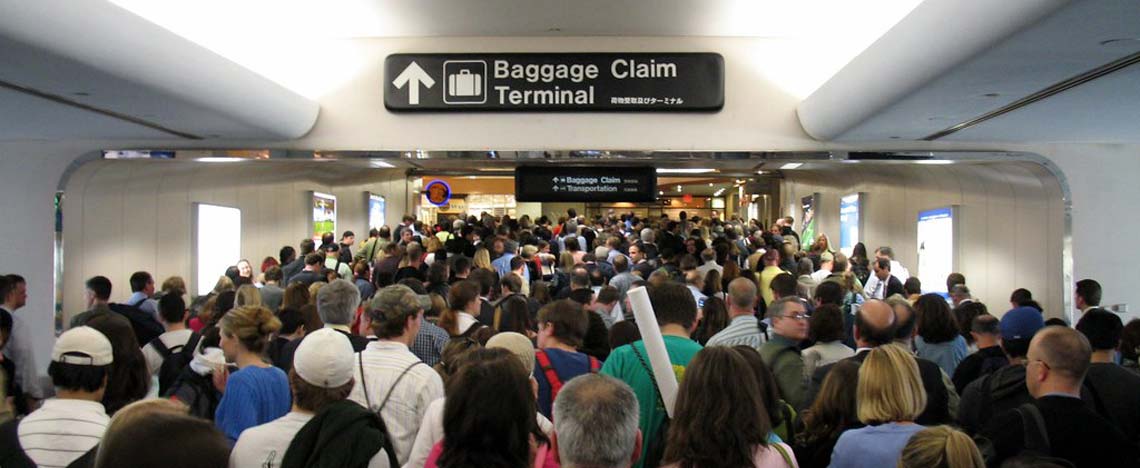
Those with hidden disabilities can often find seeking help extremely difficult at airports. The noise, queues and sensory-driven retail areas can be overwhelming and extremely challenging for many.
A green lanyard scheme has been introduced in the UK to help identify those with hidden disabilities who need help, but this is currently only in UK airports. On arrival overseas, passengers often do not continue to receive the help they require and can be left stranded.
Additional pre-departure information via airport websites, familiarisation films and visits are a great help to customers with autism spectrum disorders, for example. But they're only available at a few airports around the world.
Airlines
Wheelchairs are regularly mishandled and damaged, leaving passengers immobile. Read more...
Wheelchairs aren't allowed on aircraft, so they must be put in the hold. However, for those reliant on wheelchairs for their independence, handing over this essential and trusty equipment to untrained staff can be terrifying.
 Over 2,000 wheelchairs were mishandled or damaged by US airlines in the first three months of 2019 in the USA.
Over 2,000 wheelchairs were mishandled or damaged by US airlines in the first three months of 2019 in the USA.
This often means leaving passengers immobile at their destination. Wheelchairs and other personal mobility aids are treated as 'special luggage' for insurance purposes. Compensation for lost or damaged devices will rarely cover the actual cost of replacement.
Once onboard — and even when using an onboard wheelchair — the configuration of planes means that it is often impossible for those with reduced mobility to use the toilets without the help of a companion, as cabin crew are not permitted to help lift those who need assistance. The traveler has to make a choice between risking traveling alone or forking out for another plane ticket for someone to travel with them.
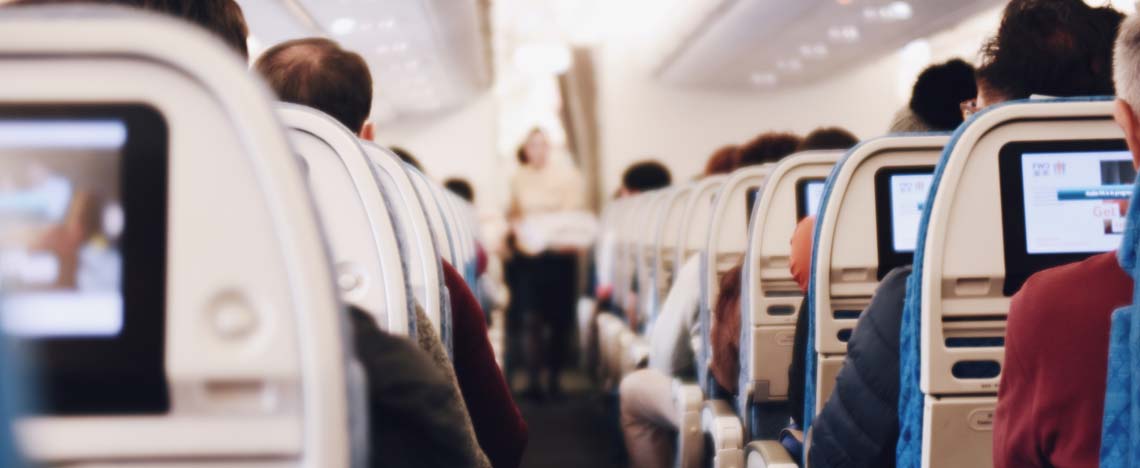
Those with hidden disabilities risk being ignored or brushed aside by untrained staff, like the Ryanair passenger who was told that she didn't "look disabled". Others may be unable to sit next to their carers or receive priority boarding that can make all the difference for someone with autism.
Getting around
Train and underground stations, buses and taxis remain inaccessible in countries around the globe. Read more...
Forty percent of UK train stations remain inaccessible to physically disabled people. In Rio de Janeiro in Brazil, only 5 percent of train stations are accessible for wheelchair users — and that's despite the city holding the Paralympics in 2016. Then there's New York City, where 75 percent of subway stations aren't wheelchair accessible. In Paris, a shocking 3 percent of the metro is fully accessible, having been excluded from France's disability and equality laws of 2005 due to the age of the network.
 Buses can be a challenge for travelers with accessibility requirements.
Buses can be a challenge for travelers with accessibility requirements.
Although some city buses reserve areas for wheelchair users, there is often just one spot — and it's usually shared with prams and pushchairs. Delhi might have one of the most accessible metro systems, but buses largely remain inaccessible as they lack ramps. Drivers aren't trained in helping passengers with mobility impairments, regularly cruising on without stopping.

Getting a taxi can be very difficult in cities like Beijing and throughout India. On the flipside, London is renowned for the accessibility of its black cabs. But even in countries where accessible taxis are available, users sometimes get charged extra.
Hiring a car can also be a struggle. Finding a vehicle with hand controls, or a van with lifts or ramps, is impossible in many places.
In destinations
Attractions and restaurants aren't always equipped to welcome those with access requirements. Read more...
The way we design our public spaces is crucial. A lack of drop kerbs and accessible pavements are a challenge for many traveling to cities such as Bangkok. Worldwide, there have been numerous cases of vehicles knocking wheelchair users out of their chairs, thanks to poor pedestrian accessibility.
 A US study found that pedestrian wheelchair users are over a third more likely to be killed in a road accident than the general public.
A US study found that pedestrian wheelchair users are over a third more likely to be killed in a road accident than the general public.
What about the museum, national park, café or restaurant you're heading for? Unfortunately, it's a similar story. Sixty-three percent of the UK's most-visited tourist attractions were not fully accessible for users of wheelchairs and other mobility aids. And it's not just about physical access, either. Only a third of UK tourism venues are equipped to fully accommodate people with autism.
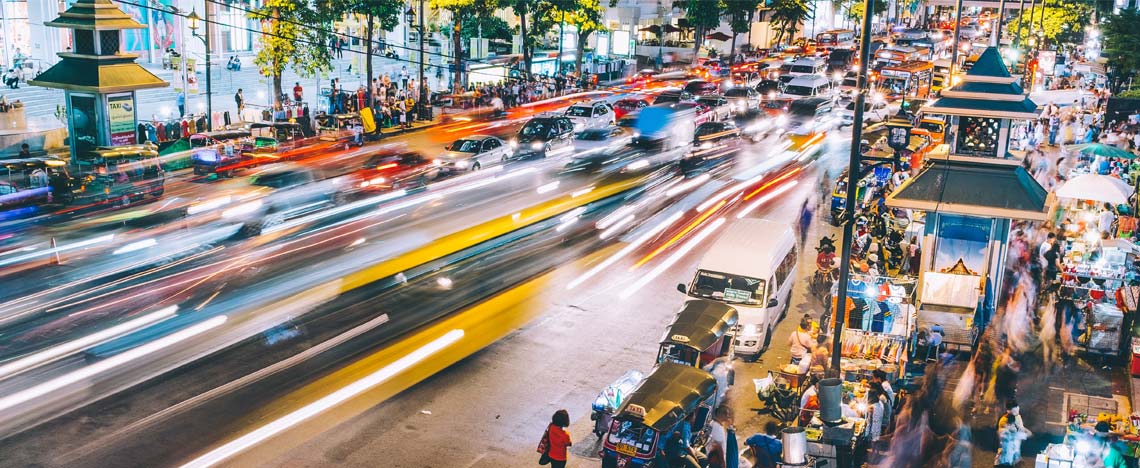
Ramps, accessible toilets, accessible car parking spaces, large print menus, hearing loops, Braille signage... All these things can transform the experience of someone with access requirements. Yet staff attitudes can also be a barrier. A survey by Guide Dogs UK found that 75 percent of all assistance dog owners surveyed had been refused access to a service at some point because they had an assistance dog with them.
Hotels
Global hotel certification schemes don't ensure those with accessibility or disability issues are provided for. Read more...
You can expect the very best service and facilities if you are staying in a five-star hotel — that's if you're not disabled, of course.
There's no worldwide standard for official hotel classification systems, but a UN report looked at the criteria in four- and five-star hotels in countries around the world. 'Accessible for guests with reduced mobility' was present in only 26 percent of hotel criteria catalogues. Compare that to 'minibar' (present in 80 percent) or 'number of towels per person' (85 percent).
European hotels fared even worse, where the prominence of accessibility standards was present in just 17 percent of four-star hotel criteria.
 In the UK, none of the hotel certification schemes include accessibility or disability provisions at any star level.
In the UK, none of the hotel certification schemes include accessibility or disability provisions at any star level.
This is despite building regulations for new hotels or extensions demanding that at least one in 20 bedrooms needs to be wheelchair accessible. VisitEngland schemes also contain good practice accessibility guidance.

For any star rating to be achieved in India, the hotels must have at least one accessible room. However, often this room is 'under renovation' and unavailable, particularly in the budget category.
Is this the warm welcome you'd expect from a hotel?
Legislation
Unless people with access requirements make complaints, many businesses do not make the adjustments legally required. Read more...
The 2006 UN Convention on the Rights of Persons with Disabilities (CRPD) is an international human rights treaty ensuring equal access to — among other things — "cultural life, recreation, leisure and sport". That includes equal access to tourism venues and services. It's been ratified by 177 countries (although not the USA). However, the extent to which countries have put legislation into practice — and then ensured compliance — varies tremendously.
Under the Equality Act 2010, tourism providers in the UK must make "reasonable adjustments" to ensure that, as far as possible, people with disabilities enjoy an equal experience to that of non-disabled persons. The reality is, though, that the law is too vague. Unless disabled people make complaints, many businesses do not make the adjustments required.
This is outrageously unfair. A freedom of information request to the Equality and Human Rights Commission found that just 19 inquiries have been received in regards to accessible travel and tourism issues from January 2016 to June 2019.
Finding the support and finances, let alone the stamina, to pursue legal action is daunting for anyone.
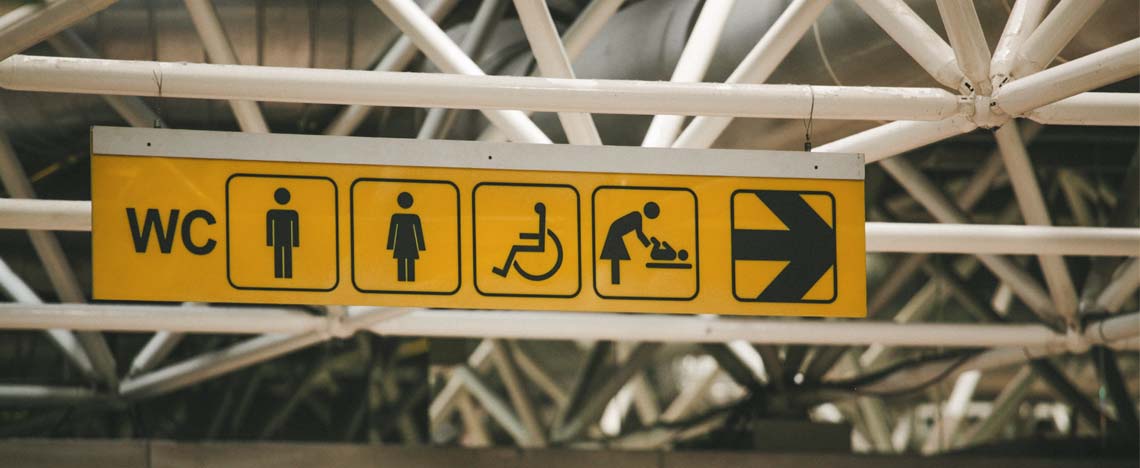
Surprisingly — and unknown to many — the Equality Act also applies to vacations overseas if booked with a company in the UK.
The Americans with Disabilities Act (ADA) of 1990 demands that hotel rooms must be accessible both at the booking stage and on arrival. But as with all disability and equality legislation across the globe, the implementation and compliance isn't always up to scratch. India passed a similar act in 2016, setting time frames for businesses to comply — however many are failing to do so.
The Package Travel and Linked Travel Arrangements Regulations were introduced to the UK in 2018. This meant that those companies booking accommodation, flights or car hire were committed to providing information on "whether the trip is generally suitable for persons with reduced mobility and upon the traveler's request, precise information on the suitability of the trip taking into account the traveler's needs". This regulation focuses too much on mobility issues, forgetting that the majority of people face hidden disabilities.
Is change possible?
If businesses can cast aside their fears around cost or of not being 'perfect' and start real conversations with customers, then real change can begin. Right now, the tourism sector is a dysfunctional marketplace. There's a demand for accessible tourism services, but the market isn't supplying. The tourism industry needs to show itself willing to open up and start a dialogue — one that doesn't exist right now.
The travel industry must wise up and look at some of the best practices that already exist. It is time to realise that all customers will have some specific access needs at some time, and that there is huge untapped potential in the £249 billion 'purple pound' in the UK alone.
The added value? By making our vacation environment more accessible, we also benefit the communities that live there. It's a win-win for all.
 We can do much, much better. This conversation starts with just a few words. It's time to say, "Yes, we can help you — and this is how."
We can do much, much better. This conversation starts with just a few words. It's time to say, "Yes, we can help you — and this is how."
 We can do much, much better. This conversation starts with just a few words. It's time to say, "Yes, we can help you — and this is how."
We can do much, much better. This conversation starts with just a few words. It's time to say, "Yes, we can help you — and this is how."
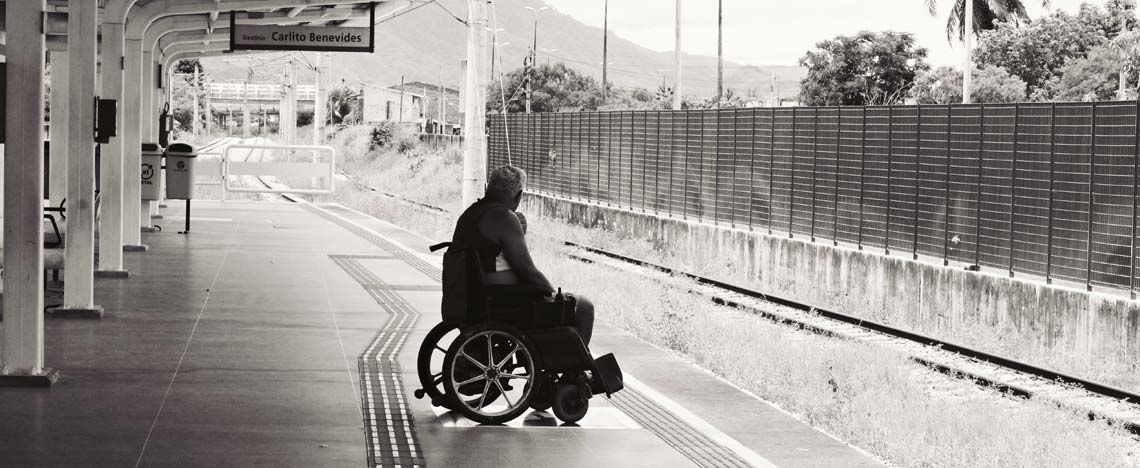
The travel industry must do much more
Watch our film, narrated by the brilliant and inspiring Karen Darke, an adventurer and Paralympic athlete, and help us change the travel industry so that it better serves people with accessibility requirements.

What ACTION is needed?
Making tourism accessible
- All travel companies should publish information on what trips are accessible and for who. That includes hotels, tour operators (including adventure travel specialists), transport companies, visitor attractions and tourist boards. Commit to responding to requests from people with access requirements as transparently and helpfully as possible — and within 48 hours of receiving an inquiry.
- A welcoming and attentive attitude makes all the difference; all tourism businesses need to foster a 'can do' view to accessibility. A statement of commitment to this should be published on their website by 2024.
- By 2024, every travel company should have specially trained staff who focus on skills such as listening and empathy in order to assist customers with access requirements.
- Every travel organisation should make its website accessible to people with disabilities by 2024.
- Tourist boards around the world must better plan and advise travelers of routes and sights that meet their needs, warmly welcoming those with accessibility requirements to their destination. This should be done via accessible, user-friendly websites and apps, as well as photos and film.
- Create more pre-departure familiarisation information (e.g. airport photos, films and open days). Quiet routes and quiet rooms for customers are required at airports, hotels and destinations for those with autism, mental health issues and other hidden disabilities.
- Aircraft should be configured so that passengers are able to sit in their own wheelchairs by 2025. Planes should be fitted with an accessible toilet.
- Airports and airlines around the world should adopt the successful UK lanyard scheme and implement it worldwide to make assistance for those with less visible or 'hidden' conditions more readily available. This should be accompanied with additional training for staff so that they can assist travelers fully.
- A new organisation for free legal advice and action in each country is needed to help bring legal cases forward that may be in breach of national disability and equality legislation.
- Travelers with accessibility requirements must not settle for anything less than the very best customer service. Ask questions and interrogate travel companies about what they are doing in this area. If you believe they may be breaking equality laws in your country, take your complaint forward and raise awareness any way you can, including on social media.
Resources
- Accessible vacations
- Accessible travel guide
- Traveling with a wheelchair — interview with Fiona Jarvis
- Traveling with a disability — interview with Karen Darke
- Traveling with reduced mobility — interview with Martyn Sibley
- Traveling with autism — interview with Kevin Chapman
- Our founder's personal accessibility story
- Accessibility infographic
Special thanks for input and advice from: Harold Goodwin (Responsible Tourism Partnership); Ross Calladine (VisitEngland); Neha Arora (Planet Abled); Karen Darke (Inspire and Impact); Martyn Sibley (Disability Horizons); Ivor Ambrose (European Network for Accessible Tourism); Fiona Jarvis (Blue Badge Style); Chris Wood (Flying Disabled); John Morris (WheelchairTravel.org); Ami Naru (Travlaw); Kevin Chapman; The National Autistic Society (UK).




